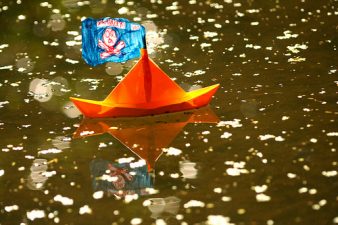Muslim nations may face a lot of diverse problem but one concern they share is water scarcity. At the latest conference of Islamic environment ministers, water shortage was highlighted as one of the most pressing environmental issue facing the region and Muslim leaders stated it finding a solution was one of the ‘most important duties of our time’. Could reconnecting to Islamic water management principles help Muslim countries avoid the worst effects of water scarcity brought on by climate change?
What Islam Says About Water
As the ultimate source of life, water is held in high regard by most societies. It is considered a blessing, a gift and something which must be protected for the benefit of all of mankind.
According to an excellent report by Naser I. Faruqi entitled “Islam and water management: Overview and principles” water is of profound importance to Islam. In the Qur’an, water is a reoccurring motif of purity as it is used for ablutions (washing before prayers) five times a day and paradise is also described as “gardens beneath which rivers flow”.
The main principles which emerge from Islamic teachings is that every human has a right to clean water to quench their thirst and also that water is precious resource which must not be wasted even during abundance. The right to water is established by the notion that water (as well as land and fuel) is a shared resources which everyone must have access to.
In the fact the importance of sharing water equally was highlighted by a hadith in which the Prophet Muhammed (pbuh) said that one of the people Allah ignores on judgement day is the person who hoarded water excessively to the detriment of others. Whilst humans are judged to have first priority access to water, it must be shared with other creations and finally, if there is water remaining, it can be used for agriculture.
Saving Water And Changing Behaviours
Limiting waste and conserving water is also highlighted in Islamic teaching. The Qur’an tells mankind that they should care for precious resources and limit waste: “O Children of Adam… Eat and drink: But waste not by excess, for God loveth not the wasters.” Furthermore, there is evidence which states that the Prophet used just 2/3 of a litres of water to perform ablution and that he spoke of not wasting water even when it was abundant: “Do not waste water even if performing ablution on the bank of a fast-flowing, large river.”
Whilst these two principles may appear to be common sense notions, the strength of invoking these Islamic principles is their ability to reach out to a wide group of people and also to change behaviours in the Muslim world. Faruqi states in his report that considering the clear Islamic water ethic, “it is surprising that they are not used more widely to promote water conservation in predominantly Muslim countries.”
Whole scale behavioural change is one of the major stumbling blocks for dealing with climate change, but in the Muslim world at least, highlighting the Islamic notions of water care could be a useful solution to the region’s water problems.
For more on Islam and water issues see:
Muslim Countries Tackle Water Scarcity
Global Warming Message Goes Awry at UAE Water Park
Lebanon’s Mediterranean Apocalypse: Scuba Diving In Waters Devoid Of Life




Jazaki Allah khair for this article! I was looking for the Hadith you mentioned. Can you tell me where you learned that our Prophet Muhammed sallalahu alayhi wa salaam only used 2/3 a liter of water to perform ablutions? I believe it, but would like to know the source! Your article has inspired me to make more of an effort to use less water when making wudu inshallah.